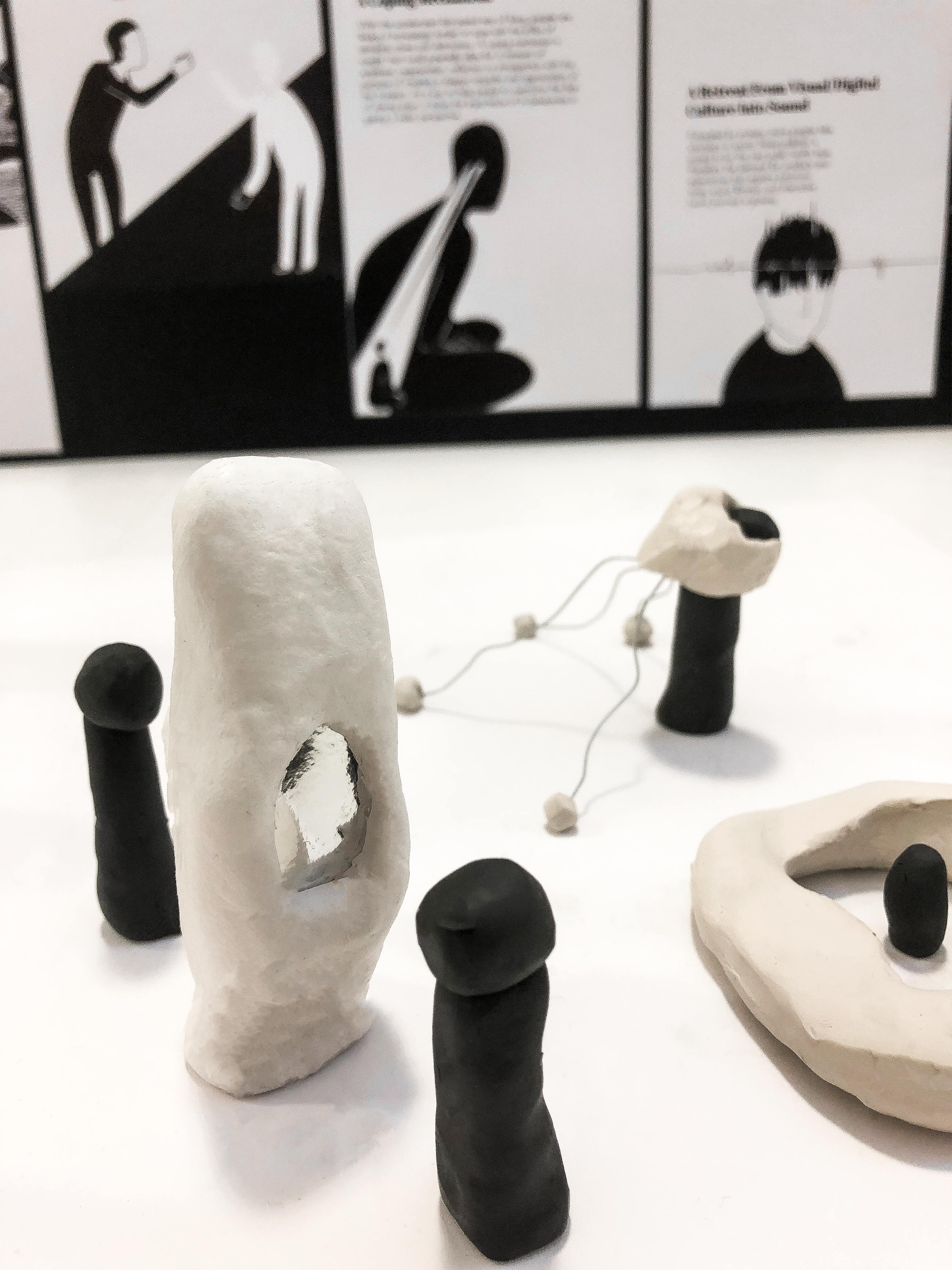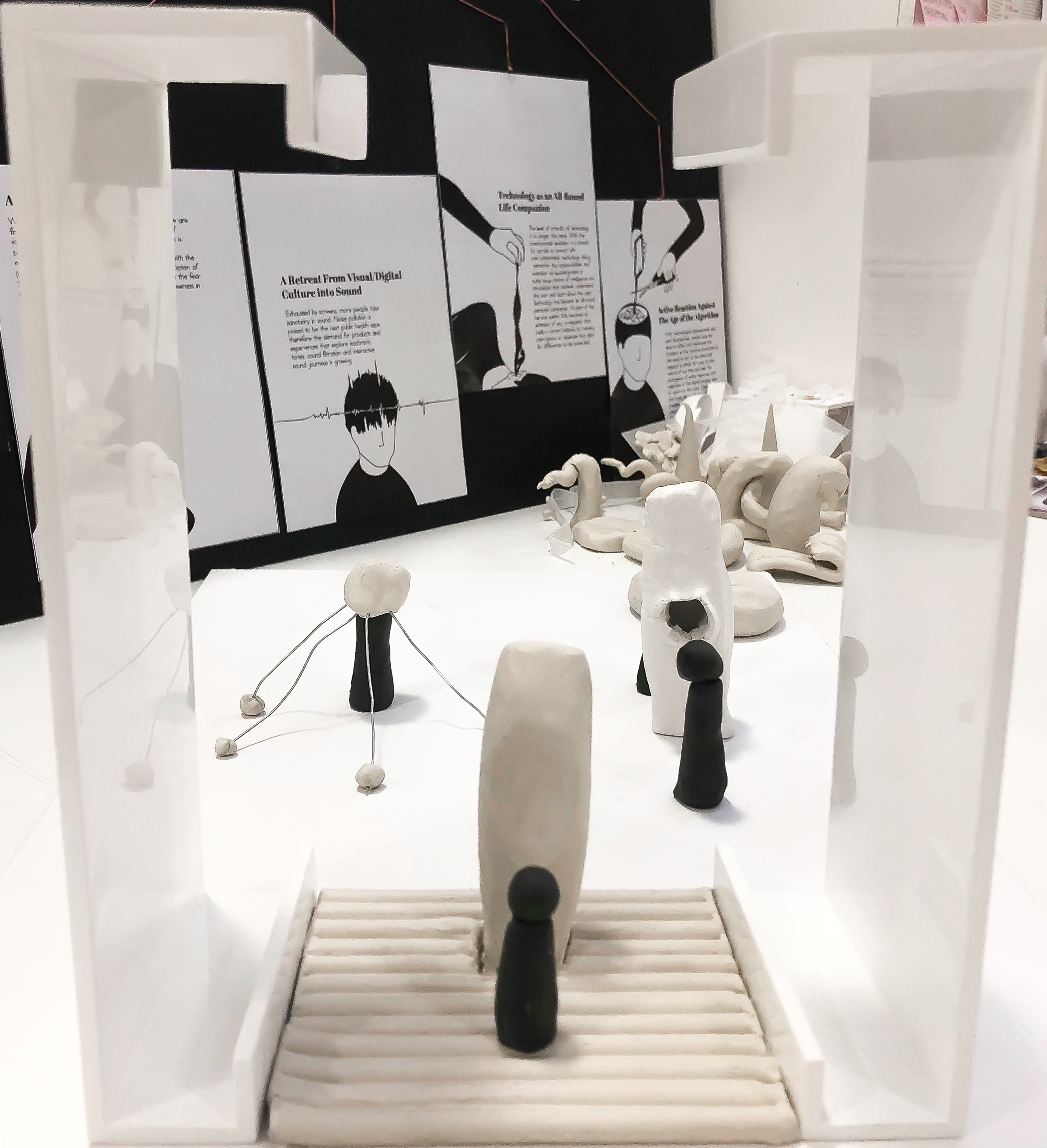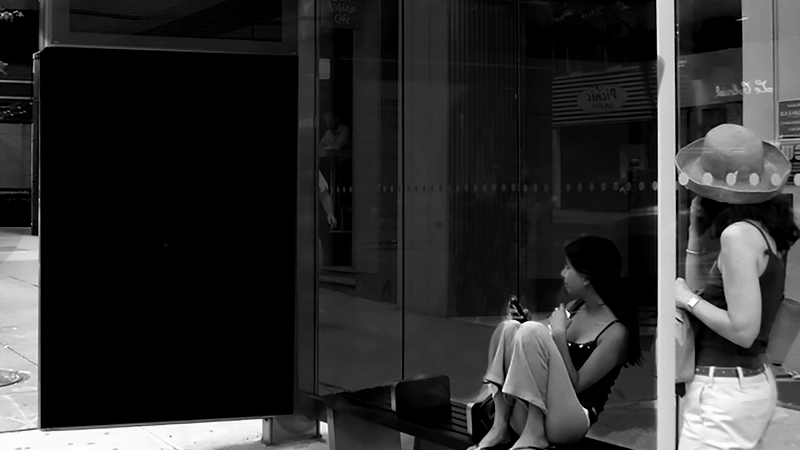
IO
Glasgow School of Art
Speculative Design
2020
Glasgow School of Art
Speculative Design
2020
IO is a speculative project inspired by the Japanese notion of Ma (間), defined as ‘in-betweenness’, ‘negative space’ or
‘time-space’, and proposes an experiential response to the modern fast-paced society. Its value lies in provoking and challenging society to re-think our relationship with time and societal expectations of meeting the ever-increasing speed instilled by modern economies. It envisions a future where ultimately technology is the last resource for stimulating an introspective hiatus. IO becomes a new form of public-facing intelligence, designed to create an unexpected moment of in- betweenness and reflection, by creating a one-off emotional connection with a stranger initiated by facial recognition and shaped by social data. This personalised Ma moment targets the overstimulated and inattentive, to disrupt the fast-paced rhythm of society.
‘time-space’, and proposes an experiential response to the modern fast-paced society. Its value lies in provoking and challenging society to re-think our relationship with time and societal expectations of meeting the ever-increasing speed instilled by modern economies. It envisions a future where ultimately technology is the last resource for stimulating an introspective hiatus. IO becomes a new form of public-facing intelligence, designed to create an unexpected moment of in- betweenness and reflection, by creating a one-off emotional connection with a stranger initiated by facial recognition and shaped by social data. This personalised Ma moment targets the overstimulated and inattentive, to disrupt the fast-paced rhythm of society.

It envisions a future where ultimately technology is the last resource for stimulating an introspective hiatus. IO becomes a new form of public-facing intelligence, designed to create an unexpected moment of in-betweenness and reflection, by creating a one-off emotional connection with a stranger initiated by facial recognition and shaped by social data. This personalised Ma moment targets the overstimulated and inattentive, to disrupt the fast-paced rhythm of society.

With technological advances and work-focused lives, people have less time to reflect on their lives as they become dominated by the need to act, to be online, to deliver, which ultimately causes a desensitisation to our environment, a feeling of ennui and fragmented attention across society. Technology gave us the possibility to always be connected and never feel alone. The key value of IO is that it disrupts this preconceived notion by letting us be alone for a brief quiet moment and to just think about yourselves. It provokes a discussion surrounding existing societal norms, how those affect our wellbeing and how in relation the role of technology might change in the future.
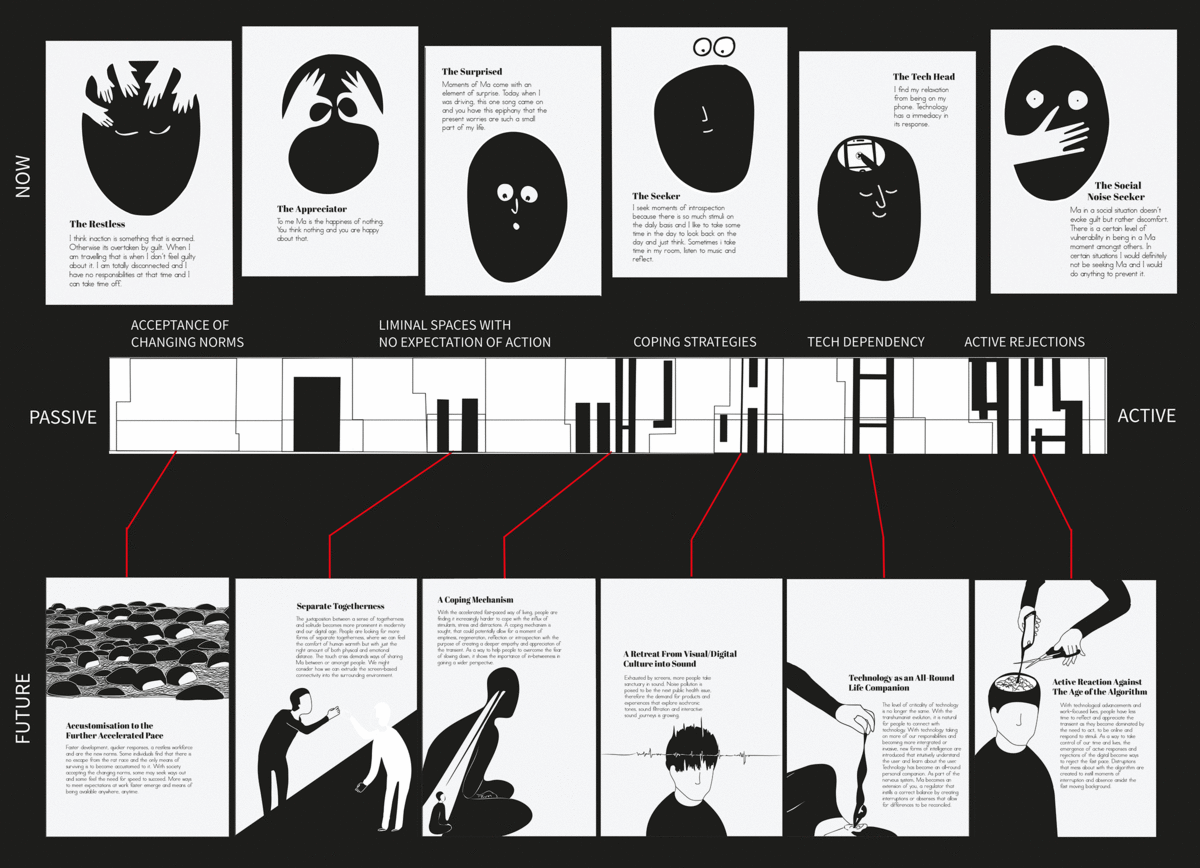
IO takes place in a future scenario where technology becomes an all-round life companion. With new forms of intelligence introduced to understand and learn about its users, facial recognition becomes ubiquitous and socialising took on the form of 'separate togetherness’. Such alternative futures were created in the process of drawing out a spectrum of society's future responses to the tensions of fast-paced city life. Personas were curated based on emerging behavioural habits in interviewed stakeholders that identified as being negatively affected by the lifestyle, depended on technology for mental repose and were put into stress at the moment of inaction.
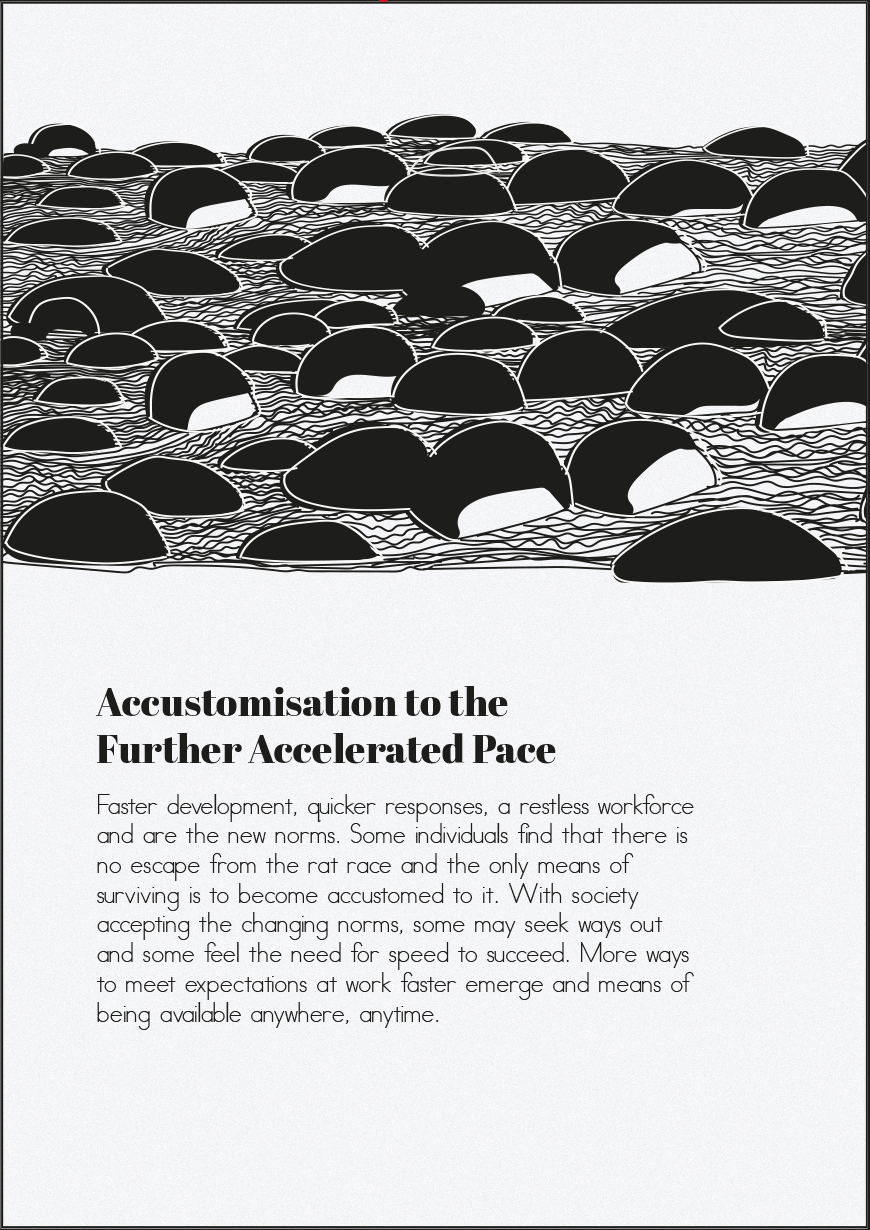
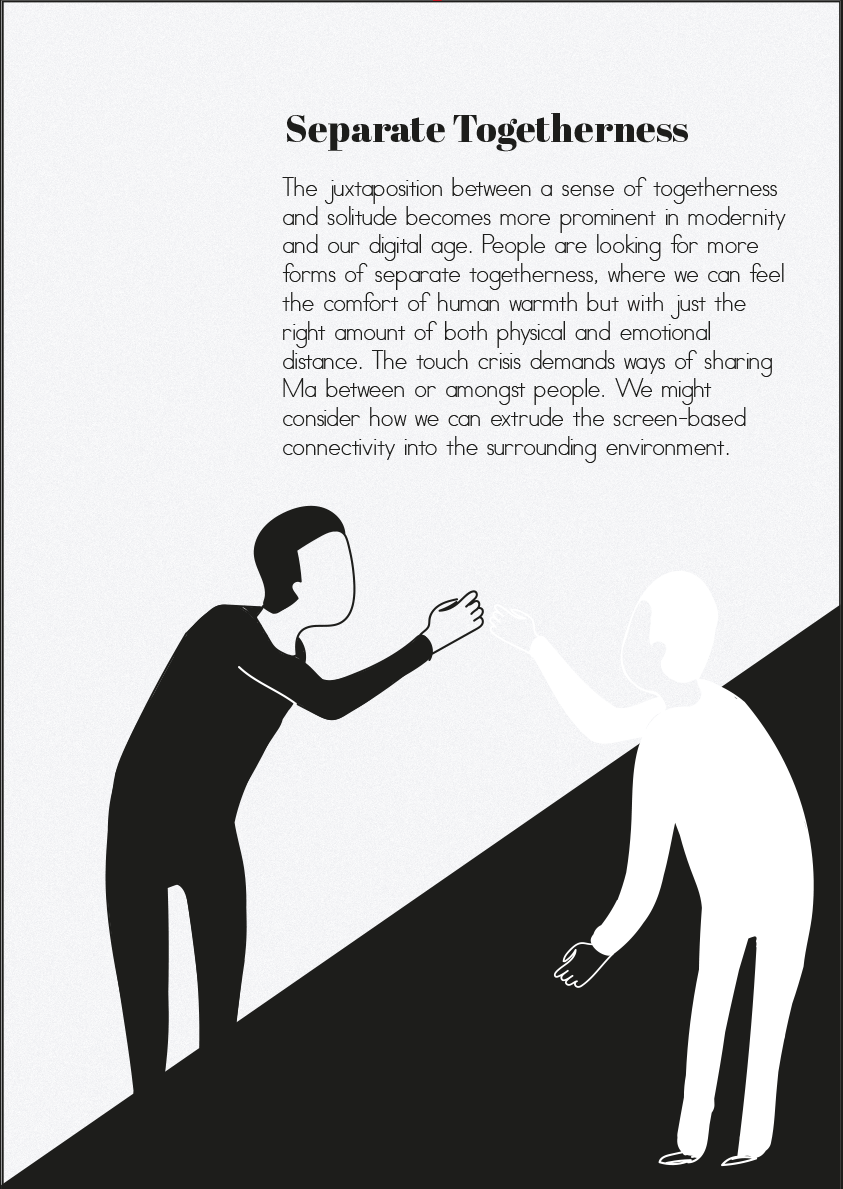
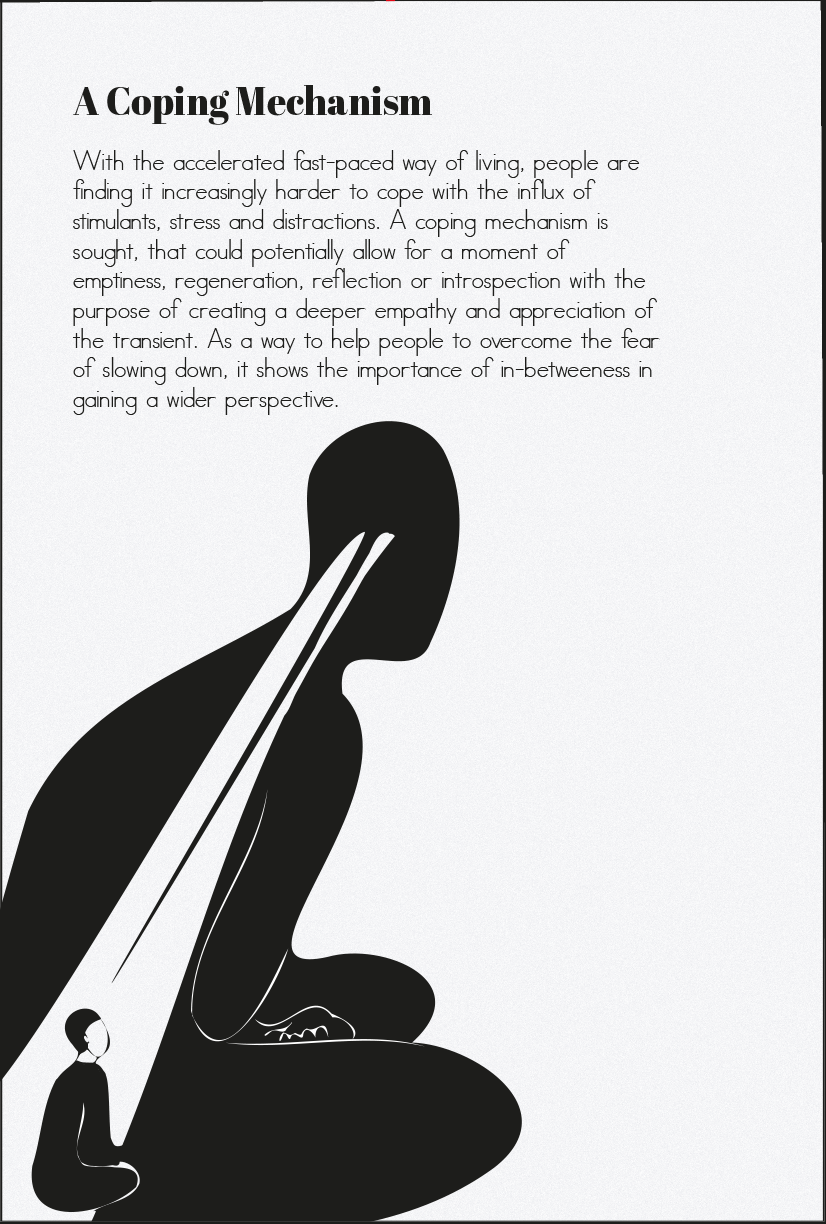
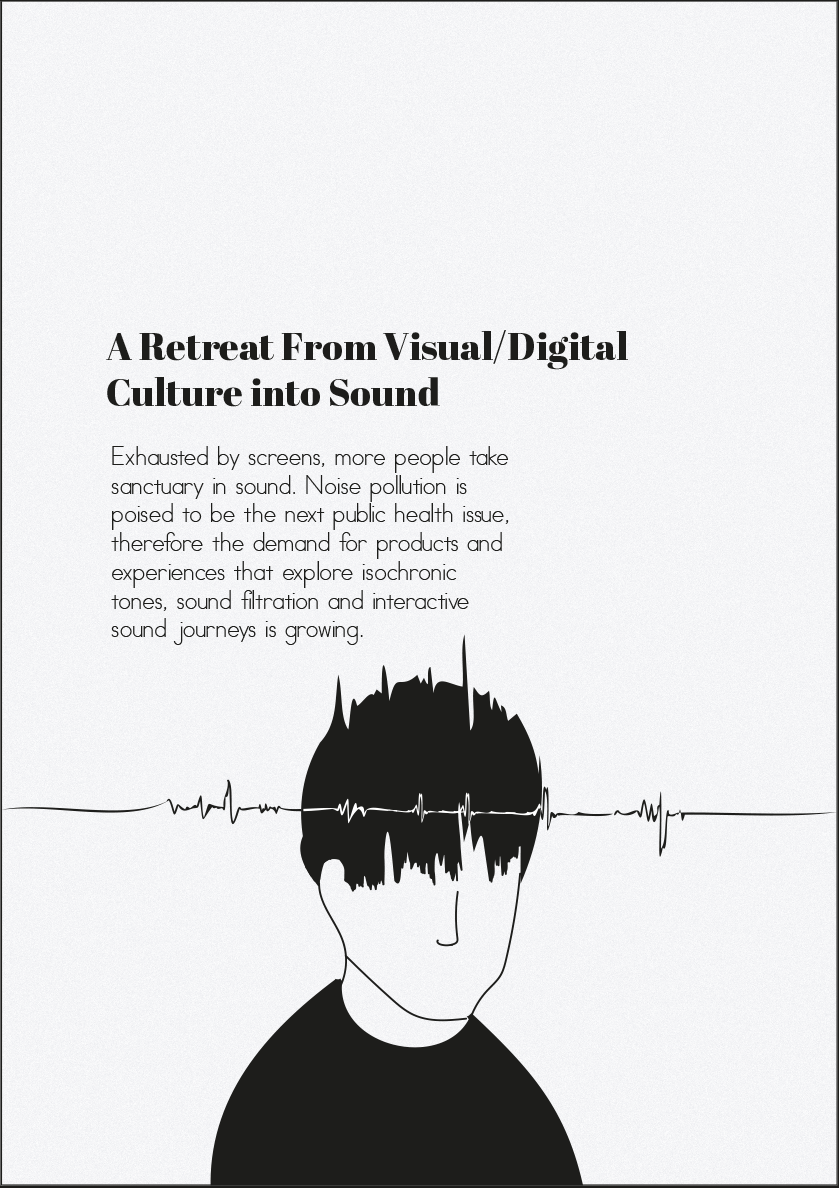

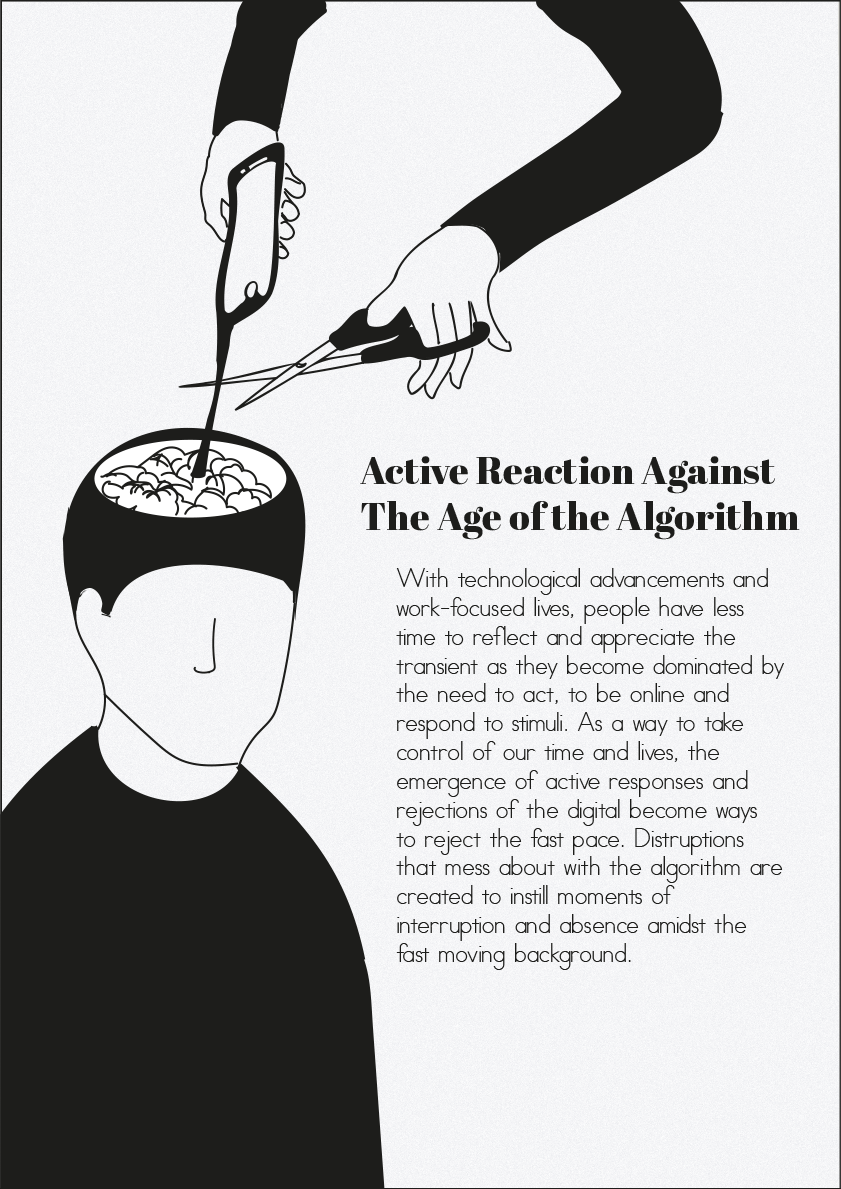
With the objective to explore how the metropolitan environment instils a draining rhythm, I decided to engage in the practice of flânerie and explore how psychogeography can aid in gathering insights and design opportunities. While mapping my journey and taking documentation of my encounters, tensions and spontaneous moments of Ma, I came across this black panel guarding off a construction site; static on the background of the bustling city. This shocking juxtaposition enforced a sudden pause and contemplation, where ultimately I found myself in a spatial in-betweenness.
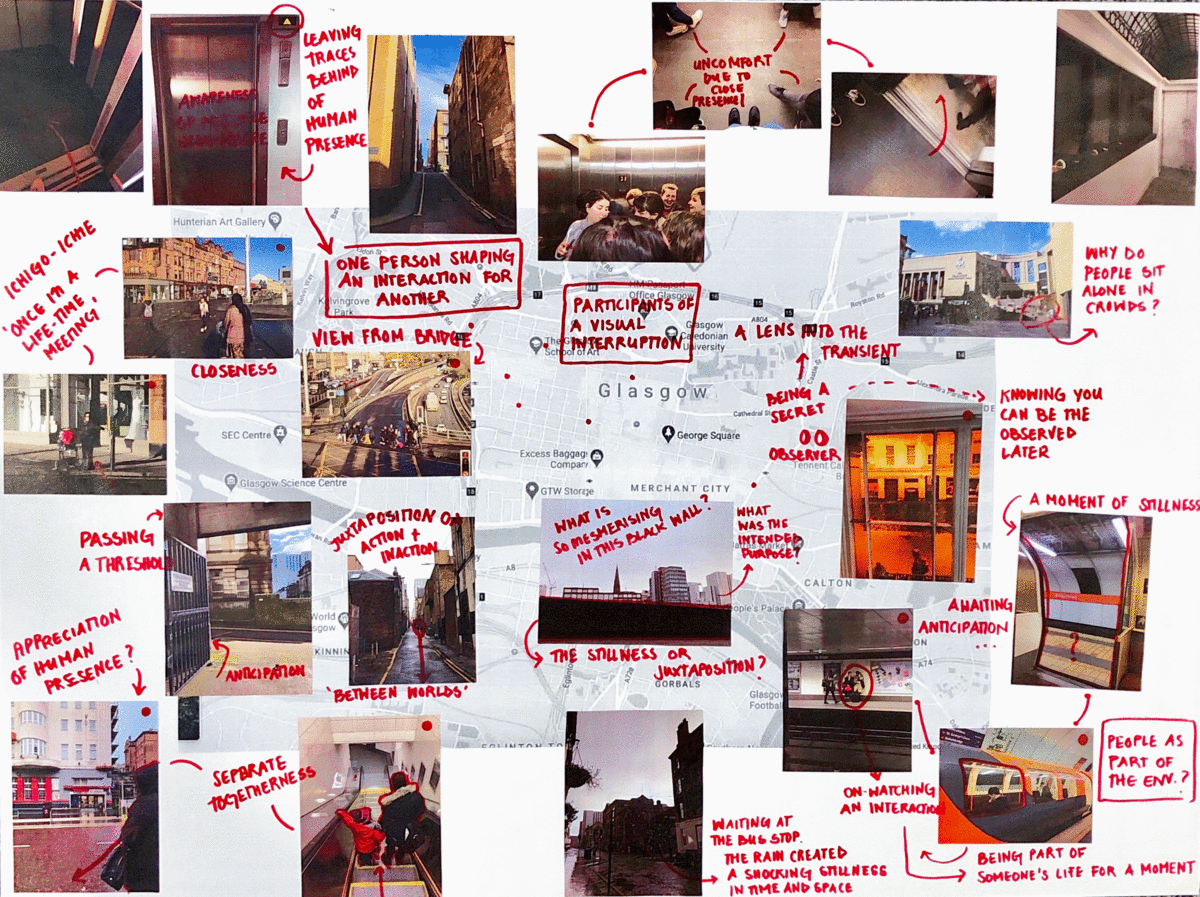
Challenging existing systems using ideologies that often take on relational meaning was difficult at first to imagine. Critical discussions with Japanese designers made me realise how momentous Ma is in Japanese everyday life and how it can be utilised for gaining a wider perspective.
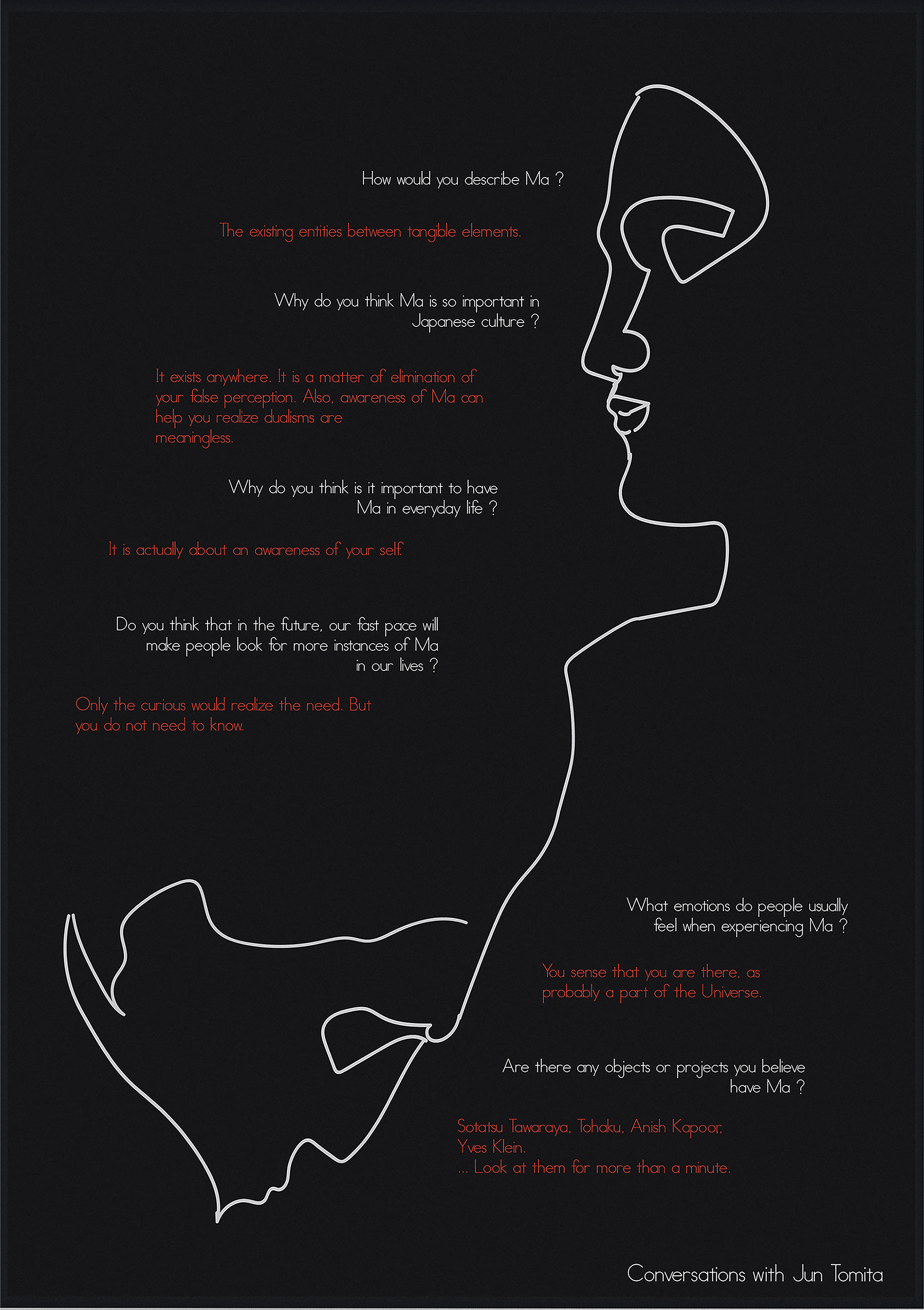
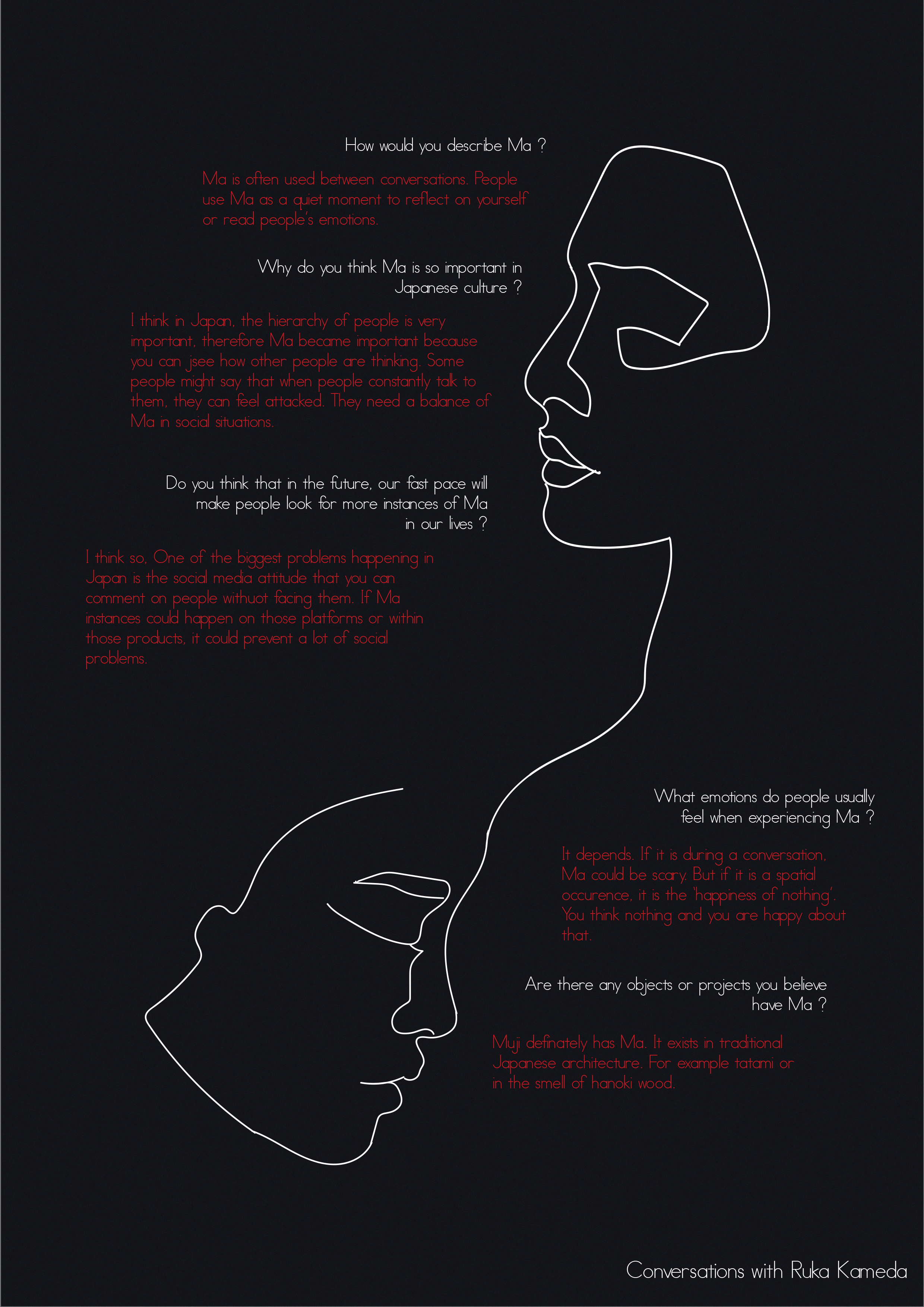
Participatory methods of involving stakeholders in materialising this abstract concept became useful in contextualising Ma and exploring tangible interpretations. By provoking people to think in these abstractions, I was pleasantly surprised to observe 'Ma' becoming a new universal term and human value amongst my participants.
Participants’ Interpretations of Ma
 Research Board
Research Board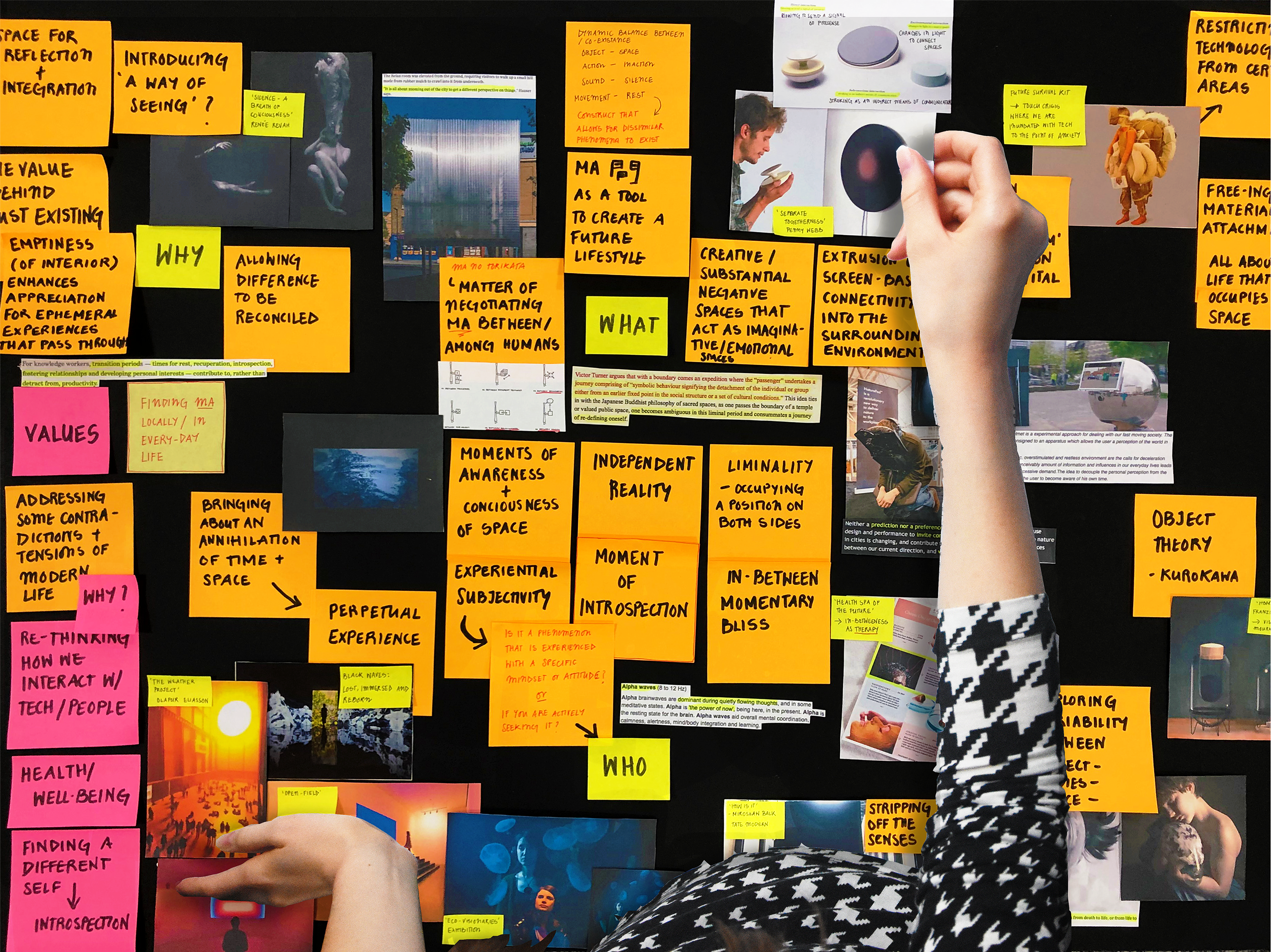 Moodboard
Moodboard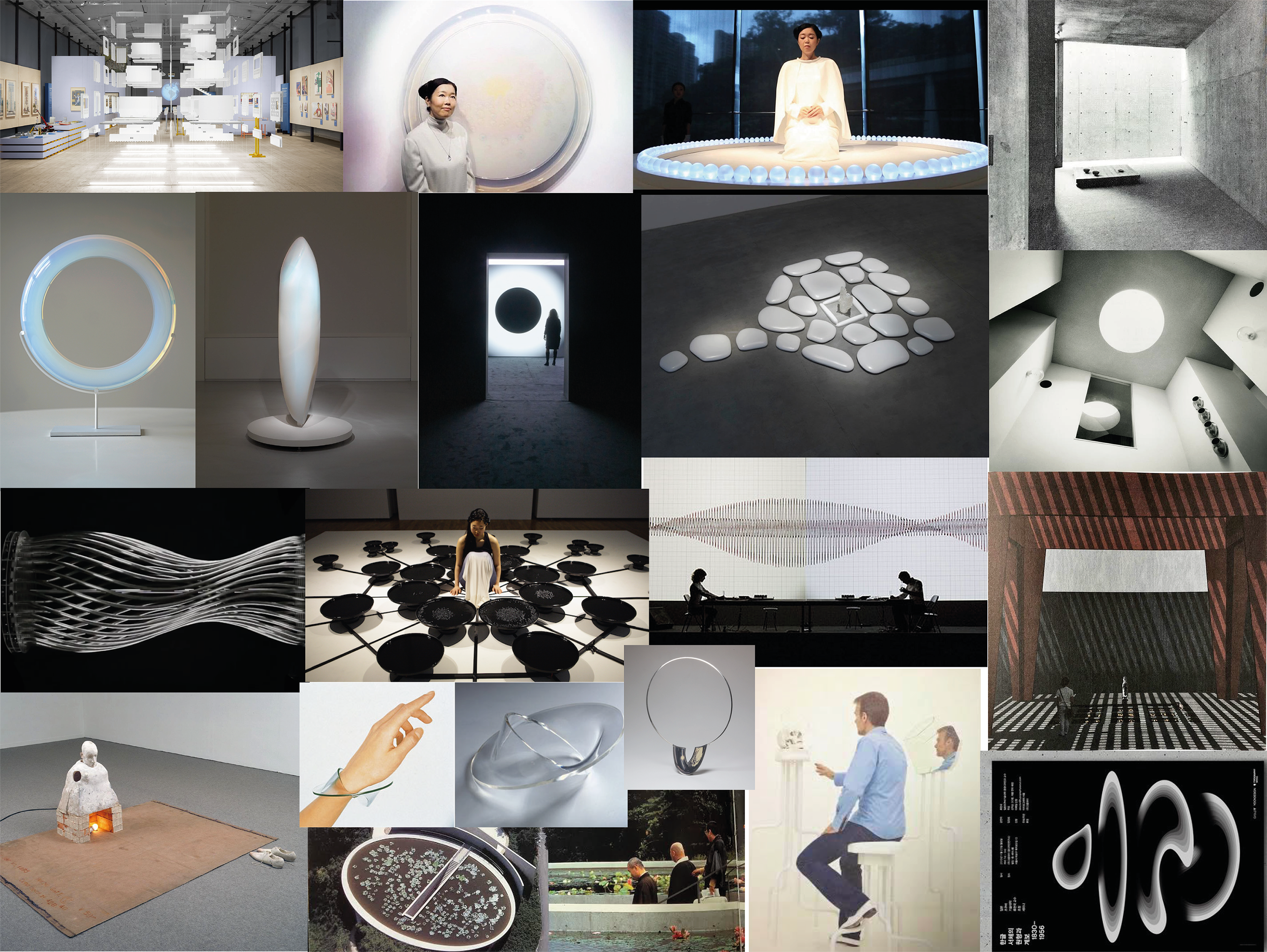 Developmental Models
Developmental Models